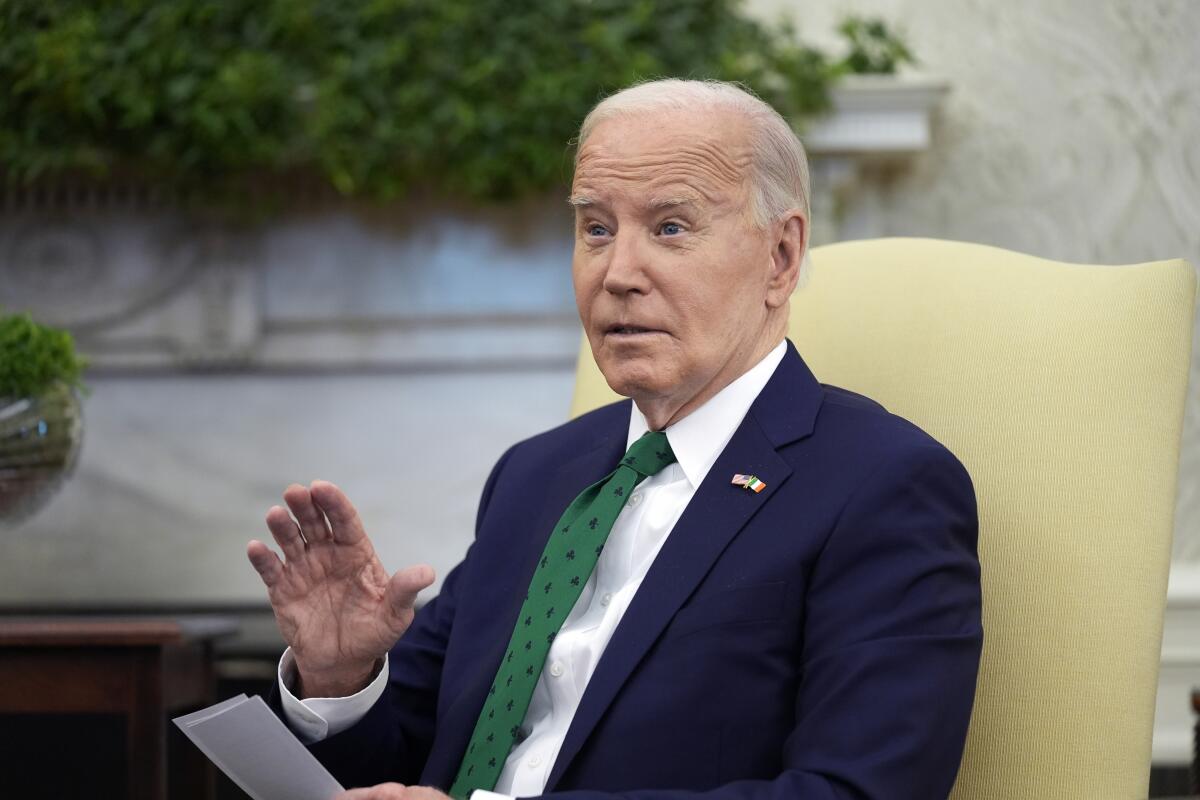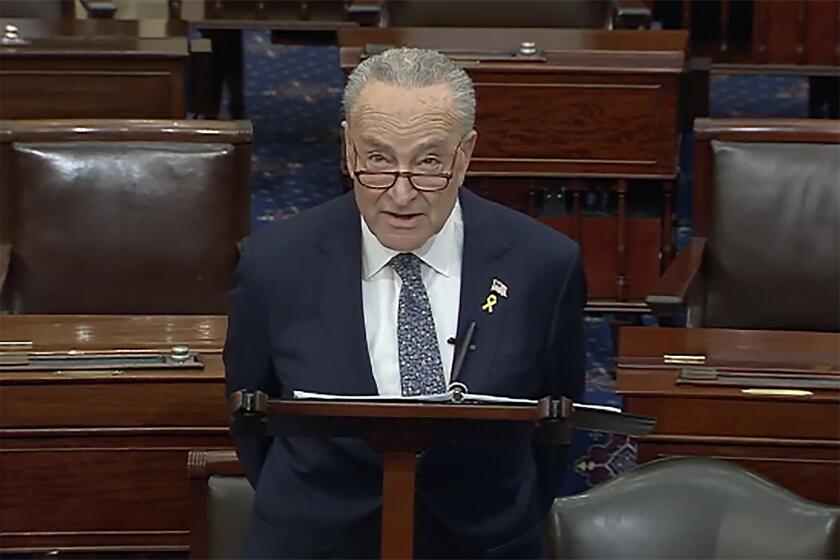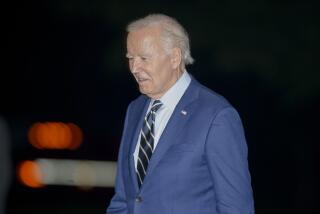Biden backs Schumer after senator calls for new elections in Israel

- Share via
WASHINGTON — President Biden expressed support Friday for Senate Majority Leader Charles E. Schumer after the senator called for new elections in Israel, the latest sign that the U.S. relationship with its closest Middle East ally is careening toward fracture over the war in Gaza.
Schumer, a Jewish Democrat from New York, sent tremors through both countries Thursday when he said Israeli Prime Minister Benjamin Netanyahu has “lost his way” and warned that “Israel cannot survive if it becomes a pariah” as Palestinian casualties continue to grow.
“He made a good speech,” Biden said in the Oval Office during a meeting with Ireland’s prime minister. “I think he expressed serious concerns shared not only by him but by many Americans.”
The Democratic president did not repeat Schumer’s appeal for Israel to hold elections, a step that would probably end Netanyahu’s tenure because of mounting discontent with his leadership.
But Biden’s comments reflect his own frustration with an Israeli prime minister who has hindered efforts to expand humanitarian assistance in the Gaza Strip and opposed the creation of an independent Palestinian state.
The highest-ranking Jewish official in the U.S. strongly criticized Israeli Prime Minister Benjamin Netanyahu and called for new elections in Israel.
Biden’s comments also highlight the evolution of his views on the war, which began when Hamas attacked Israel on Oct. 7, killing about 1,200 Israelis and taking about 250 hostages. The president immediately embraced Netanyahu and Israel while also warning against being “consumed” by rage.
Since then, Israel’s bombardment and ground attacks have killed more than 30,000 Palestinians in Gaza. And while Biden continues to back Israel’s right to defend itself, he’s increased his criticisms of Netanyahu.
After his State of the Union speech last week, Biden said in a hot-mic moment on the floor of the House chamber that he needed to have a “come-to-Jesus” conversation with Netanyahu. In an interview days later, Biden also accused Netanyahu of “hurting Israel more than helping Israel” with his leadership of the war.
The latest challenge to the U.S.-Israeli relationship is Israel’s plan to pursue Hamas into Rafah, a city in southern Gaza where displaced Palestinians have gathered to avoid fighting in the north.
U.S. Secretary of State Antony J. Blinken, speaking from Vienna, said, “We have to see a clear and implementable plan” to safeguard civilians from an Israeli incursion.
“We have not seen such a plan,” he said.
But Blinken said tough conversations between allies do not mean the alliance is fracturing.
“That’s actually the strength of the relationship, to be able to speak clearly, candidly and directly,” he said.
It’s possible that an attack on Rafah could be avoided. Talks seeking a cease-fire and release of hostages are underway in Qatar, where Netanyahu agreed to send a delegation to continue talks.
White House national security spokesman John F. Kirby said the U.S. would not have its own team at the negotiations but will remain engaged in the process.
He also said it’s “up to the Israeli people to decide” whether there should be elections. Asked about why Biden praised Schumer’s speech, Kirby said the president appreciated the senator’s “passion.”
Public opinion surveys suggest that, if elections were held now, Netanyahu would probably lose to Benny Gantz, a former military leader who is a centrist member of Israel’s war Cabinet.
“Netanyahu has an interest in buying time,” said Gideon Rahat, a senior fellow at the Israel Democracy Institute and professor of political science at Hebrew University. “That’s always his interest, not to have elections, to stay in power.”
Megerian writes for the Associated Press. AP writers Julia Frankel in Jerusalem, Matt Lee in Vienna and Darlene Superville in Washington contributed to this report.
More to Read
Get the L.A. Times Politics newsletter
Deeply reported insights into legislation, politics and policy from Sacramento, Washington and beyond. In your inbox twice per week.
You may occasionally receive promotional content from the Los Angeles Times.











